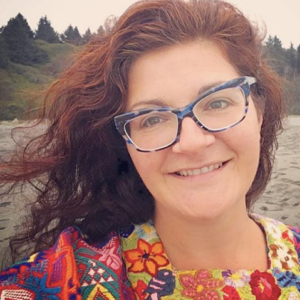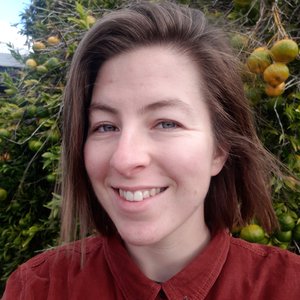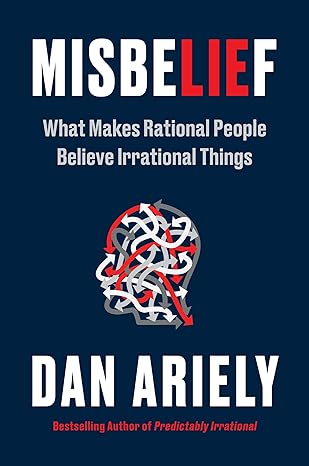If bias is something learned, not a trait we’re born with, then how do we unlearn it?
BREAKING BIAS
Where Stereotypes & Prejudices Come From—and the Science-Backed Method to Unravel Them
by Anu Gupta
Hay House, September 2024
(via Park & Fine Literary and Media)
 Growing up in India and the United States, and being a brown-skinned, cis-gendered, gay man with an Indian name, Anu has experienced different levels of bias, privilege, and prejudice in his life—ranging from the subtly stinging to the all-out violent—and he knows intimately the importance of breaking not only interpersonal bias, but our own internalized biases. Today, he is the founder of BE MORE with Anu, an organization that funds independent research on breaking bias and has provided anti-bias trainings to hundreds of companies around the world.
Growing up in India and the United States, and being a brown-skinned, cis-gendered, gay man with an Indian name, Anu has experienced different levels of bias, privilege, and prejudice in his life—ranging from the subtly stinging to the all-out violent—and he knows intimately the importance of breaking not only interpersonal bias, but our own internalized biases. Today, he is the founder of BE MORE with Anu, an organization that funds independent research on breaking bias and has provided anti-bias trainings to hundreds of companies around the world.
In his first book, Anu will provide readers with a solid foundation in understanding the different types of bias (internalized, interpersonal, and institutional) and their root causes: social contact, education, media, cultural stories, and institutional policies. Then, he’ll teach them how to break it.
At the heart of Anu’s work is the PRISM Toolkit, a mindfulness-based training program that Anu developed in partnership with a cross-disciplinary board of scientists at BE MORE. PRISM stands for Perspective-Taking, pRosocial Behavior, Individuation, Stereotype Replacement, and Mindfulness. These tools have been shown to measurably break bias through regular practice—with the added benefits of strengthening relationships, increasing resilience, reducing stress and anxiety, and even enhancing memory and cognition.
At a time when so many people are desperate for real solutions to structural inequality BREAKING BIAS will expand the important conversation and provide readers with the specific tools needed to address bias in all its forms—racism, sexism, classism, and more.
Anu Gupta is a scientist, educator, lawyer, and the founder & CEO of BE MORE with Anu, an e-learning company that trains organizations in breaking bias. He has spent five years developing and testing a unique science-backed, data-driven methodology that trains people in measurably breaking bias, with funding from National Science Foundation, New York State Health Foundation, American Heart Association, and On Being, among others. He has led hundreds of DEI programs that train professionals in this methodology. Anu has appeared on The Oprah Conversation with Oprah Winfrey, and his writing has been featured in Newsweek, Fast Company, Harvard Business Review and more.


 At night, as I stargazed from my tiny tent, I’d hear the primal whalesong roll up along the ocean floor and onto the beach where I lay. The ethereal melodies seeped through my shivering skin, like a relic of an ancient time. I felt as if I was eavesdropping across millennia, the sound stirring some faint genetic memory deep inside me.
At night, as I stargazed from my tiny tent, I’d hear the primal whalesong roll up along the ocean floor and onto the beach where I lay. The ethereal melodies seeped through my shivering skin, like a relic of an ancient time. I felt as if I was eavesdropping across millennia, the sound stirring some faint genetic memory deep inside me. One of our most private acts, weeping can forge connection. Tears may obscure our vision, but they can also bring great clarity. And in both literature and life, weeping often opens a door to transformation or even resurrection. But many of us have been taught to suppress our emotions and hide our tears. When writer Benjamin Perry realized he hadn’t cried in more than ten years, he undertook an experiment: to cry every day. But he didn’t anticipate how tears would bring him into deeper relationship with a world that’s breaking.
One of our most private acts, weeping can forge connection. Tears may obscure our vision, but they can also bring great clarity. And in both literature and life, weeping often opens a door to transformation or even resurrection. But many of us have been taught to suppress our emotions and hide our tears. When writer Benjamin Perry realized he hadn’t cried in more than ten years, he undertook an experiment: to cry every day. But he didn’t anticipate how tears would bring him into deeper relationship with a world that’s breaking. Misinformation affects all of us on a daily basis—from social media to larger political challenges, from casual conversations in supermarkets, to even our closest relationships. While we recognize the dangers that misinformation poses, the problem is complex—far beyond what policing social media alone can achieve—and too often our limited solutions are shaped by partisan politics and individual interpretations of truth.
Misinformation affects all of us on a daily basis—from social media to larger political challenges, from casual conversations in supermarkets, to even our closest relationships. While we recognize the dangers that misinformation poses, the problem is complex—far beyond what policing social media alone can achieve—and too often our limited solutions are shaped by partisan politics and individual interpretations of truth.